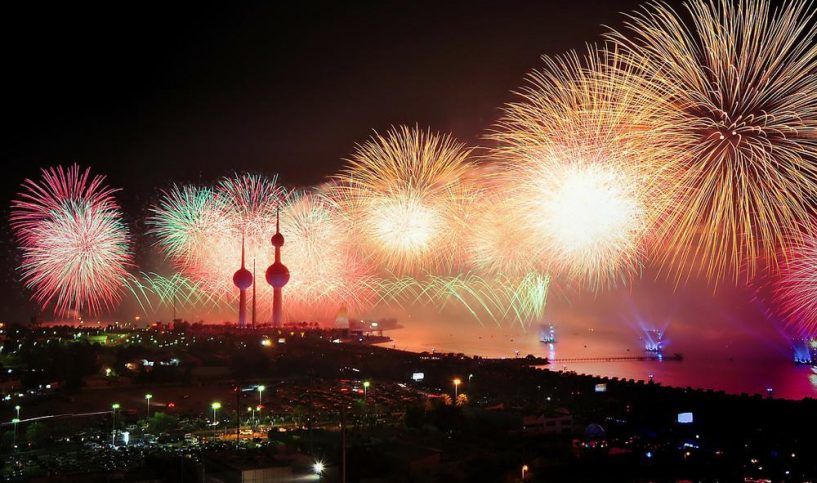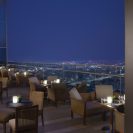In the past three years, Kuwait in particular and the Arab world in general have experienced a great surge of changes, events that have left us confused and trying to find answers, trying to determine what kind of future we wanted and what kind of lives we wanted to lead. It was once said that “the personal is political,” a saying that also applies when reversed. This suggests that before one begins to call for change in their larger society and political changes, one must first work on personal change and challenging oneself.
Though I have realized in the past few years that people have different needs, goals, and aspirations, I have also found that some of the basic wants all overlap. Kuwaitis want a house they can raise their children in before they are old and gray, chronic patients want public hospitals that can provide adequate healthcare and bedside manner, parents want their children to have a good education without having to be rich and opt for private schooling. Non-Kuwaitis want their rights protected, their labor regulated, their dignity preserved. I don’t think these are unrealistic requests, but I think that we also need to pay more attention to intangible aspirations; governmental services are always at risk – especially with oil prices dropping – but solid communal ethics are the pillars that would prevent us from collapsing.
I think that we need to aim for a future where our decisions are based on our own personal beliefs and convictions, irrespective of what society deems right or wrong, irrespective of what offends one’s family and irrespective of the labels that might be imposed on you. The key difference between an individual who prioritizes his own wants over the preferences of those around him is not selfishness, as we so often like to claim when guilt tripping, but happiness. We have grown so used to putting on masks that the only moments we experience happiness in are the moments we take them off, moments where the only ones who see us are other masked people, moments of temporary, often artificial escape.
The misery that has swept so many people and become an accustomed, intimate part of their double-lives is astonishing. A girl wears her hijab around her family with a heavy heart, and then takes it off around her friends with the temporary ability to breath, coupled with a pinch of guilt. A grown man stays up with his friends on Thursday night engaging in ‘illegal activity’, only to wake up for Friday prayer upon his mother’s request with a headache, and then heads to The Avenues instead. A man and a woman fall deeply in love with one another, share pain and joy, confess secrets and reminisce memories, only to realize that they lack the courage to confront their parents with their desire to be married simply because their family names are not ‘compatible’. Girls have their own hidden corner at universities to smoke, because the labels imposed on them differ from their male classmates who so proudly smoke outside the coffee shop. A male student studies Business rather than Anthropology because his father told him it was a “feminine major”. Everyday so many of us smile when in truth the masks are hurting us, simply because pain, we are told, is private and meant to be kept inside, and that your own personal beliefs and pleasures can be practiced in the privacy and secrecy of your home – so long as you are the ‘respectable’ Kuwaiti you are expected to be in public.
In a society that tells you to be yourself and then judges you for it, this is not an easy task. If anything, insisting on your right to personal freedom and imposing authenticity of one’s identity is even more difficult than demanding collective political and social rights of a group. The latter is bureaucratic and tedious, but provides you with more courage because of its power in numbers; the first is a more difficult battle because it solely relies on your own willingness to allow your courage to flourish. Though this is not an easy journey, it takes one person to take the first step and lead in order for others to follow; each time one of us takes off our mask, throws it away and refuses to cloak his identity with shame and fear, others will feel more encouraged to as well.
My Kuwaiti dream is a society where we don’t feel compelled to act, where we reject any and all notions of hypocrisy, where we embrace one another’s differences and respect each other’s struggles. How are we any different from the hypocritical politicians we want gone if we, too, are hypocritical in our day-to-day lives? I realize it may sound utopian to hope for a society that is free of hypocrisy, for I too, still struggle with a double-life, like so many people that I do and do not know. I still bite my tongue sometimes because I fear judgment, ridicule, or being misunderstood. I still think twice about many of my actions because I don’t want particular labels imposed on me, even if I know they are not true. But I am trying harder to take risks, to embrace my honesty and others’, to thank people who are open about their pain – past and present. I am more content on days when I am brave enough to be myself, and my Kuwaiti dream is to have a society where we are all familiar with the beauty of authenticity.








